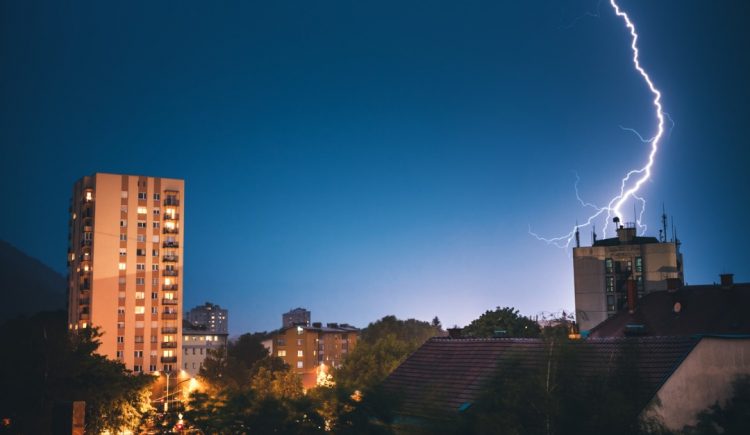Lightning strikes can wreak havoc and cause thousands of dollars in property damage. Many people don’t realize that lightning doesn’t have to strike a house directly to cause damage.
How Lightning Can Reach Your House
Lightning sometimes strikes a house directly, but often it strikes another place, then the current travels to the house. Lightning can pass through metal objects, such as pipes, windows, and gutters. After it enters a building, the current can travel through pipes and electrical wires.
Lightning can take several routes as it travels from the air to the ground. It will frequently jump from one path to another and branch out to follow several paths at once.
Lightning Can Cause a Fire
Often, lightning starts a fire in the roof or attic, and the fire consumes wood and other flammable materials, melts electrical wiring, and causes damage in other parts of the house. A homeowner may not immediately realize that a fire is burning inside the walls.
Lightning Can Damage or Destroy Electronics and Appliances
Lightning that reaches electrical wires can cause a power surge that can damage or destroy both electrical lines and devices that receive power from them, such as TVs, laptops, and appliances. Plugging electronic devices into surge protectors can protect electronics if there is a small power surge.
If your home gets hit by lightning directly, those types of surge protectors won’t be much help. Installing a whole-house surge protector can prevent damage to your home’s electrical wiring in the event of a direct lightning strike. If you don’t have a whole-house surge protector, unplug electronic devices and appliances during a thunderstorm.
Thunder Is Also a Threat
When heated air around lightning expands quickly, it creates thunder. Shockwaves from thunder can damage brick, concrete, and stone, especially in chimneys. Shockwaves can also crack a house’s foundation, break glass, and launch shrapnel into the air.
If Your Home Gets Struck by Lightning, Have It Inspected
If lightning strikes your house, contact the fire department immediately. Even if you don’t see any flames, there may be a fire inside the walls. If so, firefighters will be able to detect it. You should also have a contractor and an electrician inspect your house as soon as possible to identify any damage caused by the lightning strike.
Your homeowners insurance policy should cover the cost of repairs associated with lightning damage. Contact your insurance company or agent promptly to file a claim.








